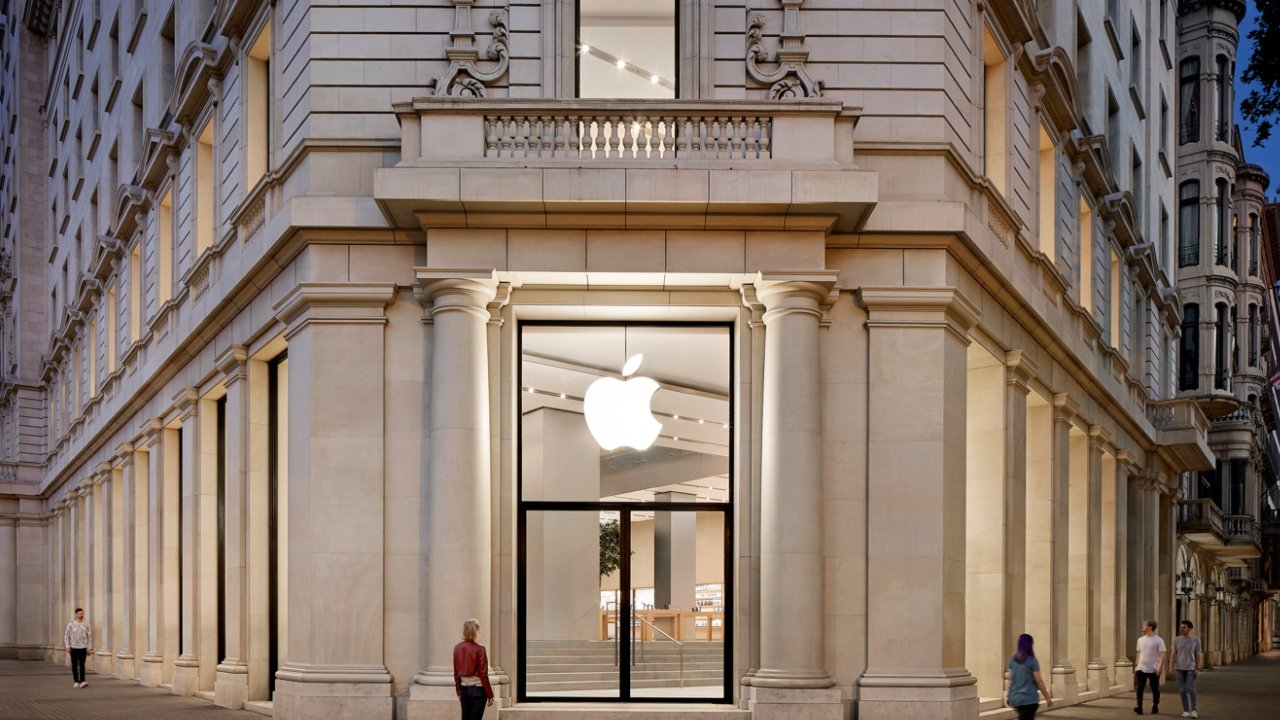Spain puts $209 million fine on hold while Apple and Amazon appeal
The Spanish High Court says it will suspend its fines against Apple and Amazon while the firms appeal against its antitrust regulator's ruling.

Apple Passeig de Gracia store in Spain
Spain's Comision Nacional De Los Mercados Y La Competencia (CNMC) first announced in July 2021 that it was investigating the two companies. The accusation was that the firms unfairly colluded in order to "reduce competition in the Internet retail market for electronic products."
Central to the case was whether there were any deals that saw Apple restricting sales of its products to only itself and to Amazon. By 2023, the CNMC believed it had found sufficient proof that it fined the pair a total of 194.1 million Euros (now $209.2 million).
Both Apple and Amazon said they would appeal the decision and according to Reuters, they have now done just that. Apple has not commented, but an Amazon spokesperson told Reuters that the Spanish High Court's decision to suspend the fine is part of the appeals process.
According to Reuters, the CNMC fined Apple 143.6 million Euros ($154.7 million), and Amazon 50.5 million Euros ($54.42 million).
The CNMC also says that Apple and Amazon signed a contract in 2018 that made Amazon an authorized Apple dealer. This contract allegedly included anti-competitive clauses that the CNMC says prevented over 90% of existing retailers from selling Apple devices on Amazon.
Spain's regulator also alleges that after the contracts were made, Amazon restricted the advertising that Apple's competitors were allowed on its website when users searched for products.
It has not been announced how long Apple and Amazon have to make their appeal, nor when a final ruling can be expected.
Read on AppleInsider

Comments
I don't see governments telling Thornton chocolates in my local high street that they must sell other brands of chocolate, and which brands they should sell.
"This contract allegedly included anti-competitive clauses that the CNMC says prevented over 90% of existing retailers from selling Apple devices on Amazon".
The iPhone, iPad and Macs would be enormously less attractive without third party options.
Apple choosing one option over another isn't the point.
Apple had little choice but to allow third parties onto the devices. Without them there wouldn't be much of a platform.
Right from the outset, Apple knew that 'control' and the restrictions that come with it (restrictions Apple imposes) , mean revenue streams.
The second you starting doing business with outside forces, the regulators can start looking at those restrictions. It's perfectly valid for some of them to be considered anti-competition and dealt with.
More changes are on the way. Major changes.
The most recent directives were only the start. So the DMA/DSA, common charger, batteries directive will soon be accompanied by directives that favour right to repair, with 10 year windows for support and spare parts (at 'reasonable' prices!). Obligatory software support windows, declared at time of purchase, separation of OS security and new feature additions, option to reverse feature updates etc
Nothing Apple specific. It's for the industry in general.
My local bar just switched from Pepsi to Coke even though Pepsi (per drink) is more profitable to them. Neither will allow the establishment to sell the other brand although in that case it isn't a cola issue but rather all the other products that come with the contract.
Being a gatekeeper actually changes what Apple can choose to do. It changes it radically and the reasons behind it have been explained very well. They legal text takes no time at all to get into the details and is very clear. They begin in the preamble and in the EU, the member states agree on the reasons.
It is quite possible that similar changes will be imposed in the US and other regions for the exact same reasons.